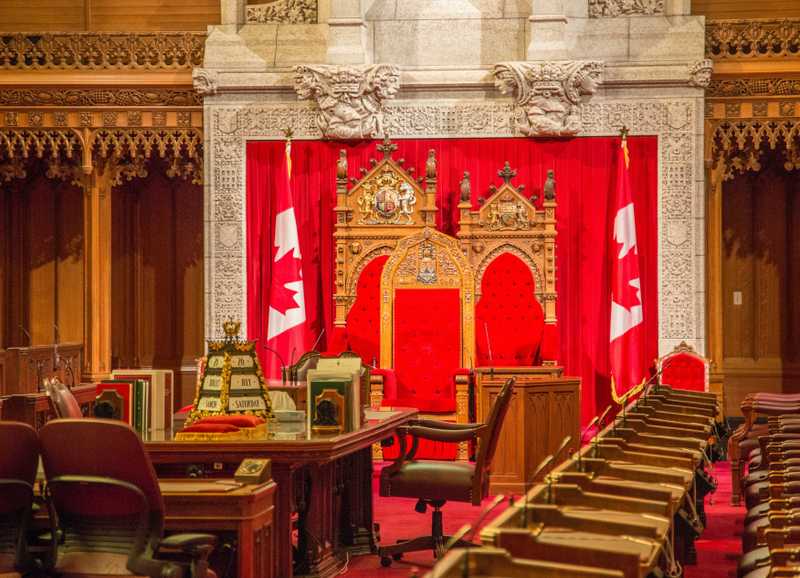On June 7, the Canadian Senate held a crucial vote on Bill C-45 to legalize recreational cannabis consumption nationwide. With a majority vote of 56 to 30 for legalization and one abstention, senators established a roadmap for Canada to end a nearly 100-year prohibition on adult-use marijuana. This historic moment could very well set Canada up to become the first G7 nation to federally legalize recreational cannabis.
Though this vote may be applauded by marijuana advocates nationwide, it comes with a lot of amendments—four dozen to be exact. While many may be minor, a few amendments could have serious implications. One such amendment would allow provinces to ban cultivating marijuana plants at home and wouldn’t allow any constitutional challenges to the law. Another places rigid advertising restrictions on companies retailing marijuana.
Health Minister Ginette Petitpas Taylor has yet to share the government’s position on these amendments, but has alluded to an acceptance of at least 29 of them. The next step in adult-use cannabis legalization is sending the bill back to the House of Commons, where the government will reject, accept or modify the amendments made by the Senate. The bill will then have to be returned to the Senate for a final vote.
After the bill has been passed, it’s estimated that provinces will need two to three months to prepare for recreational cannabis sales. Some provincial regulations are at odds with municipal ones, which will impact the access to and consumption of cannabis for people across the country.
Alberta Opts for Privately Owned Cannabis Stores
Alberta is the province currently set to take the recreational marijuana sector by storm. Some have gone as far as describing recreational cannabis legalization as Alberta’s contemporary gold rush. The reasons? Alberta’s NDP government introduced a private business model for in-person marijuana sales.
In contrast, other provinces will let government-operated marijuana retail reign. Additionally, there’s a large number of people who used to work in the shrinking oil and gas sectors who are eagerly looking for employment in the cannabis industry.
Alberta province’s Alcohol and Gaming Commission projects that it will license 250 cannabis stores across the province within the first year after legalization. There will be no cap on the number of private retail permits available, though no one entity can own more than 15% of the industry’s retail licences.
This differentiates Alberta’s private business model from that of neighbouring province Saskatchewan. Saskatchewan is also gearing up for privately owned cannabis stores, but it’s capping the number of retail licences at 51.
With these less-restrictive regulations and an excited workforce, Alberta is undoubtedly preparing to take the role of a leader in the recreational marijuana market.
RELATED: COMMUNITIES SAYING YES AND NO TO LEGAL CANNABIS
Uncertainty in B.C. Over Small Marijuana Businesses After Legalization
British Columbia (B.C.) will sell cannabis through the Liquor Distribution Branch of the provincial government. B.C. has also introduced new legislation that will prohibit smoking or vaping cannabis in the same spaces where smoking tobacco is banned.
In addition, B.C.’s legislation will set the minimum age for purchasing, selling or consuming cannabis at 19 years old. Adults will be allowed to possess up to 30 gm of cannabis in public areas. They’ll also be able to grow up to four marijuana plants in their home, as long as they’re obscured from public view.
Mike Farnworth, minister of public safety and solicitor general of the province, says the purpose of the legislation was to promote the “regulation and safe implementation of legalized cannabis in British Columbia.”
Though the B.C. government has indicated that legalization will provide an opportunity for craft cannabis producers to have a place in the marijuana market, it has yet to create an application process for the more niche players. This has led to concerns for the future of the small marijuana businesses that have, to date, been active in the province’s cannabis market.
You Can Only Consume Cannabis on Private Property in Ontario
Ontario has taken a similar approach to B.C. in anticipation of legal recreational marijuana. The province's minimum age for the consumption, purchase and sale of adult-use cannabis will be 19. The number of cannabis plants allowed for home cultivation will be capped at four. Unlike B.C. and Alberta, however, marijuana can only be consumed on private property in Ontario, subject to restrictions by landlords. In April of this year, the Liquor Control Board of Ontario (LCBO) and the Ontario Cannabis Store (OCS) announced that the locations of the first four recreational marijuana storefronts will be in Toronto, Guelph, Thunder Bay and Kingston. It’s projected that 40 stores will open this year, with an additional 40 to open by July 2019.
Marijuana Could Be an Economic Windfall for Canada
It’s estimated that retail sales of recreational cannabis in Canada could amount to $6 billion by 2021. The decision to legalize recreational marijuana is considered to be paramount in ending the war on drugs and extinguishing organized crime in the country. But it also marks big economic growth opportunities for Canada. We’ll have to wait to see how the final bill, with all of its amendments, shapes the legal marijuana laws nationwide.
Photo credit: Tony Webster
